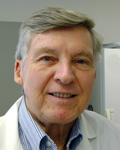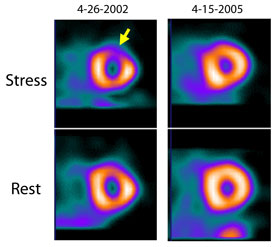The search for answers is in his blood (and yours)
Joel Moake, FACP, explains his four-decades-long pursuit of new information in the field of hemostasis/thrombosis, and what attracted him to internal medicine.
Joel Moake, FACP
Occupation: Professor of medicine (hematology) at Baylor College of Medicine from 1984 until retirement in 2007; associate director of biomedical engineering laboratory and senior research scientist at Rice University from 1984 until present.

Age: 68
Current residence: Houston
Hometown: San Antonio
Family: Wife, two children, three grandchildren and dog
Medical school: Johns Hopkins University
Residency: University of Florida Medical Center for medical internship and two years in the U.S. Public Health Service at the Baltimore Cancer Research Center
Fellowship: Hematology at the University of Miami Medical Center
Something I wish I'd learned in medical school: More information about the (then) emerging field of molecular genetics.
Why I became an internist: Compared to other specialties, internal medicine requires the acquisition and application of a larger body of basic knowledge about biochemistry, physiology, pharmacology and microbiology. I was attracted to these subjects in medical school and, consequently, toward clinical training in medicine.
Most rewarding aspect of my job: The four-decades-long pursuit of new information in the field of hemostasis/thrombosis.
Most meaningful professional accomplishment: Discovery of the fundamental role of inadequately cleaved, hyper-adhesive, unusually large von Willebrand factor multimers in the pathophysiology of thrombotic thrombocytopenic purpura.
Future goals: To understand the causes of other enigmatic types of thrombotic microangiopathies.
Hardest medical lesson learned: Excessive personal entanglement in medical school or hospital-related conflicts can diminish clinical and investigational creativity.
Personal heroes: Alexander Hamilton and Harry Truman.
Pet peeves: Medical decision making in hospitals by non-physicians.
Favorite ways to spend free time: Hiking/biking in Wimberley, Texas, and Ketchum/Sun Valley, Idaho.
Favorite authors: Robert Conquest and Bernard Lewis, eminent historians of the Soviet era and of the Middle East, respectively.
Books on your night stand: I am currently reading “Ivan the Terrible” by Isabel de Madariaga, the great scholar of old Russia, and “The Mind of Jihad” by Laurent Murawiec, the French-American Middle Eastern historian. Recently I completed, after many months of reading in snippets, “The Great Upheaval” by Jay Winik, about the U.S., France and Russia between 1788 and 1800.
Most meaningful non-medical accomplishment: Nurturing the growth of two children into responsible, admirable adults.
Item I can't live without: I require daily carbamazepine (Tegretol) tablets to suppress temporal lobe seizures caused by a childhood head injury.
Most surprising thing about you: I played for many years (until benched by age and arthritis) on a nationally competitive Houston amateur baseball team.
Biggest regret: Failure to express my appreciation to the late Barry Wood, MD, for his everlasting help. Dr. Wood, as professor of medicine and microbiology at the Johns Hopkins University School of Medicine, was responsible for my admission to the medical school.
If I weren't a physician, I would be: An aspiring historian of 20th century Russia.



